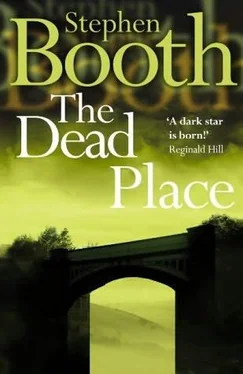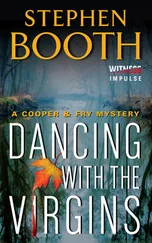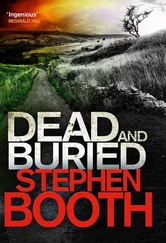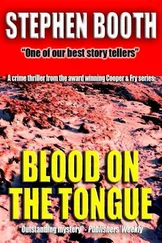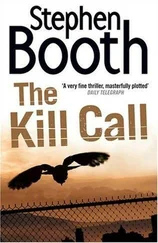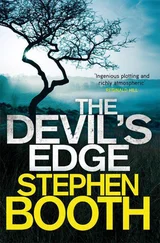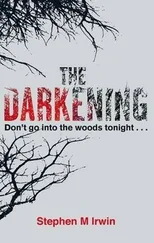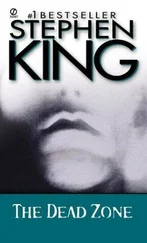Stephen Booth - The Dead Place
Здесь есть возможность читать онлайн «Stephen Booth - The Dead Place» — ознакомительный отрывок электронной книги совершенно бесплатно, а после прочтения отрывка купить полную версию. В некоторых случаях можно слушать аудио, скачать через торрент в формате fb2 и присутствует краткое содержание. Жанр: Полицейский детектив, на английском языке. Описание произведения, (предисловие) а так же отзывы посетителей доступны на портале библиотеки ЛибКат.
- Название:The Dead Place
- Автор:
- Жанр:
- Год:неизвестен
- ISBN:нет данных
- Рейтинг книги:4 / 5. Голосов: 1
-
Избранное:Добавить в избранное
- Отзывы:
-
Ваша оценка:
- 80
- 1
- 2
- 3
- 4
- 5
The Dead Place: краткое содержание, описание и аннотация
Предлагаем к чтению аннотацию, описание, краткое содержание или предисловие (зависит от того, что написал сам автор книги «The Dead Place»). Если вы не нашли необходимую информацию о книге — напишите в комментариях, мы постараемся отыскать её.
The Dead Place — читать онлайн ознакомительный отрывок
Ниже представлен текст книги, разбитый по страницам. Система сохранения места последней прочитанной страницы, позволяет с удобством читать онлайн бесплатно книгу «The Dead Place», без необходимости каждый раз заново искать на чём Вы остановились. Поставьте закладку, и сможете в любой момент перейти на страницу, на которой закончили чтение.
Интервал:
Закладка:
Cooper put his foot down a little harder on the accelerator as the Fox House came into view, outlined against the evening sky. He sensed the Toyota surging forward, eager to cover the ground. An irrational feeling had come to him, one probably born of relief at getting out of the city. It was a sudden burst of confidence, a certain knowledge that he was going to achieve his task.
The facial reconstruction had given him the chance he needed, and he was sure it was going to work. Once he crested that hill, Jane Raven Lee would be coming back home, too.
With a sharp backwards kick of her right foot, Diane Fry slammed the street door of the house. But the noise from the ground-floor flat didn’t even falter. Disco-house with urban drum loops at full volume. No matter how hard she slammed it, the damn students wouldn’t hear the sound of the door over the din of their stereo system.
For a moment, she thought of ringing their bell and complaining. It might give her a brief feeling of satisfaction to shout at them. But she knew she’d be wasting her time, and she’d only get herself wound up unnecessarily. Coming home from work was supposed to help you relax, not pile on more stress. Wasn’t that right?
Fry looked up the stairs at the door of her own flat. Yeah. Some hopes.
Inside, there was no noise but for the thud of the drum loops through the floor. So Angie was out. There was no note, nothing to indicate when she might be back. Fry opened the door of her sister’s room and looked in. If it was anyone else, she might have been able to tell by what clothes were missing whether the person who lived there had gone to the pub, gone out for a run, or set off for a job interview. But not in Angie’s case. One T-shirt and one pair of jeans would do as well as any other, whatever the occasion.
Since her sister had moved into the flat with her, Fry found herself worrying about her almost as much as she had when Angie was missing. Perhaps more. During all those years when they were separated, Angie’s whereabouts had been a generalized anxiety, deep and nagging, but an aspect of her life she had learned to accept, like an amputated finger. Now, the worry was sharper and more painful, driven in by daily reminders. By her sister’s presence in the flat, in fact.
Fry found a cheese-and-onion quiche in the freezer compartment and slid it into the microwave. Then she opened a carton of orange juice, sat down at the kitchen table and turned to the Micky Ellis file. She’d appeared in crown court to give evidence many times, but always found it a difficult experience. Defence lawyers would be waiting to pounce on her smallest slip, the slightest hint of doubt in her manner, the most trivial inconsistency between her oral evidence and written statement. A case could so easily be lost on a suggestion of failure in procedure. Forget the question of innocence or guilt. That was yesterday’s justice system.
And yet this defendant was certainly guilty. There couldn’t truly be any doubt.
There was an old joke on Edendale’s Devonshire Estate that you had three options when someone in your family died. You could bury them, cremate them — or just leave them where they fell when you hit them with the poker. Micky Ellis had chosen the Devonshire Estate third option.
When Fry had arrived at the scene, the body of Micky’s girlfriend had still been sprawled right where she’d fallen, half on the rug and half under the bed on the first floor of their council semi. She remembered that the bedroom had lemon yellow wallpaper in pale stripes, and a portable TV set standing on the dresser. She’d noticed a series of cigarette burns on the duvet cover close to the pillow on the left-hand side of the bed, where a personal stereo and a half-read BridgetJones novel lay on the bedside table. Fry had looked up at the ceiling for a smoke alarm then, but there wasn’t one. And she remembered thinking that maybe Denise Clay had been lucky to live as long as she did.
In this case, it had been the uniforms who made the arrest. The first officers to arrive had found Micky Ellis in the kitchen washing the blood off his hands and worrying about who would feed the dog. It was a walkthrough, a self-solver. Somebody had the job of doing the interviews, of course, as well as taking statements, gathering forensic evidence and putting a case together for the prosecution. And that was down to CID. The DI would be able to add the case to his CV, notching up a successful murder enquiry. It was all very predictable, but at least it didn’t tie up resources the division couldn’t spare. No one wanted the cases that stayed on the books for months, or sometimes years — the cases that Gavin Murfin called ‘whodunits’.
Fry heard a sound and looked up from the file. But it was only one of the students leaving the house. She could tell by the way the music increased in volume as a door opened, then reverted to its normal mind-numbing thud.
The microwave pinged, and she realized she’d forgotten to get out a plate for the quiche. But first she put the orange juice back and opened a bottle of Grolsch instead. There was a shelf full of swing-tops in the fridge. Maybe she’d get a bit drunk on her own tonight. It would ruin her fitness programme, but she needed something to help her sleep. Come the morning, she would have a chat with a funeral director to look forward to before her court appearance in a grubby little murder trial that might drag on for days. And then, if Ripley finally got their act together, she could expect to spend a bit of quality time listening to the voice of a sick, disturbed individual with violent fantasies and intellectual pretensions.
Fry stabbed a fork into the quiche. The outside was hot, but the centre was stone cold. Some days, this was about the best that it got.
3
Hudson and Slack was one of the oldest established funeral directors in the Eden Valley. A dependable family firm, according to the sign over the entrance. Diane Fry pulled her Peugeot into the car park next to the chapel of rest. The company might be long established, but the premises dated from the 1960s, flat-roofed and square, with a modern plate-glass frontage. The place had been built discreetly out of sight in a side street off Fargate.
Fry got out of the car and stood at the gate, looking at the houses in Manvers Street. There were stone terraces on both sides, with no gardens between their front doors and the roadway. She wondered what sort of people would choose to live where death passed their windows every morning. How many times must they look up from a meal or a TV programme and see the long, black limousines creeping by? How often did they try to enjoy a moment’s peace, only to catch a glint of chrome from the handles of a coffin out of the corner of one eye?
She turned back to the entrance of Hudson and Slack. She was sure that living here wouldn’t suit her at all. But there must be many ways of shutting out the sight of death passing by, or pretending it didn’t exist.
‘I presume you want me to come in with you, Diane?’ said a voice from the other side of the car.
For a moment, she’d forgotten Ben Cooper. As usual, he’d been the only DC she could find in the CID room when she needed company. If there was anything to follow up from this visit, she wouldn’t be able to do it herself, because she’d be tied up in court.
‘Yes, of course. You’re not here to enjoy the scenery.’
Cooper followed her into the funeral director’s, where they found Melvyn Hudson to be a dapper man in his late forties, with neat hair greying at the temples. He was wearing a black suit and black tie, and he seemed to slip effortlessly into character as he came through the door into the waiting room and held out his hand.
‘Come through, come through. And please tell me exactly how I can help.’
Читать дальшеИнтервал:
Закладка:
Похожие книги на «The Dead Place»
Представляем Вашему вниманию похожие книги на «The Dead Place» списком для выбора. Мы отобрали схожую по названию и смыслу литературу в надежде предоставить читателям больше вариантов отыскать новые, интересные, ещё непрочитанные произведения.
Обсуждение, отзывы о книге «The Dead Place» и просто собственные мнения читателей. Оставьте ваши комментарии, напишите, что Вы думаете о произведении, его смысле или главных героях. Укажите что конкретно понравилось, а что нет, и почему Вы так считаете.
